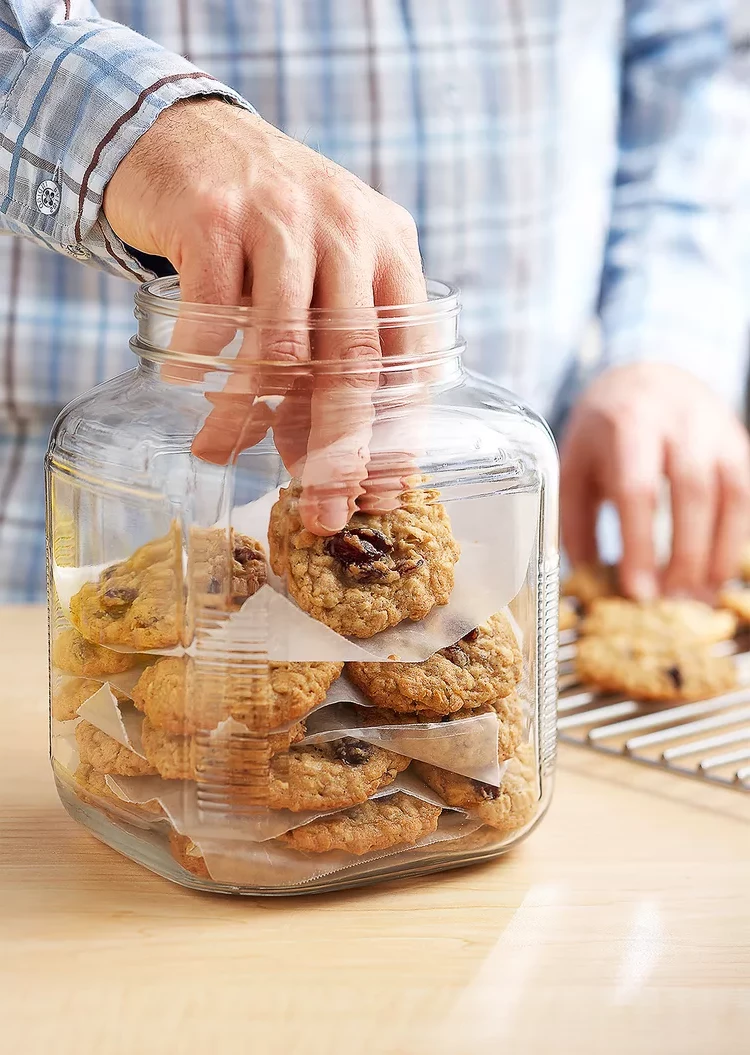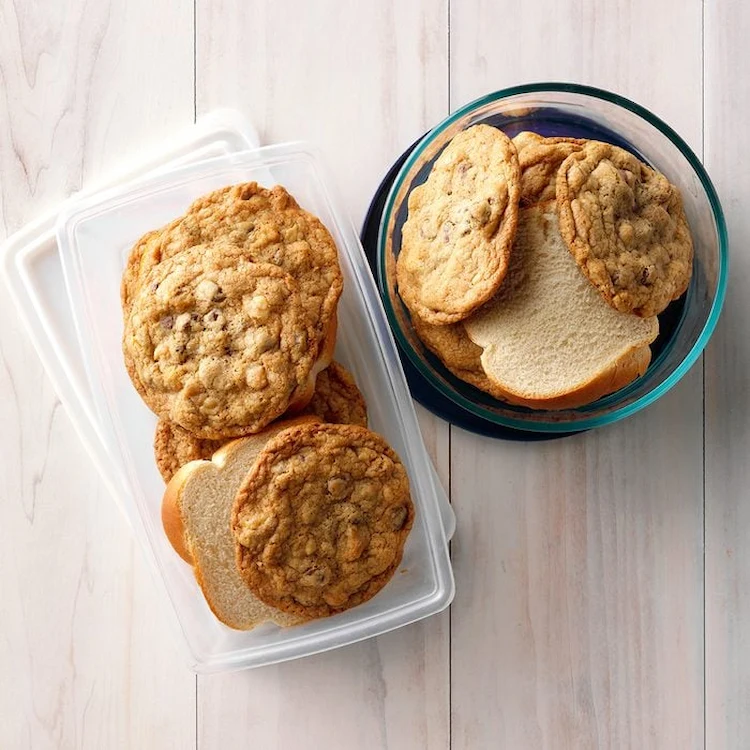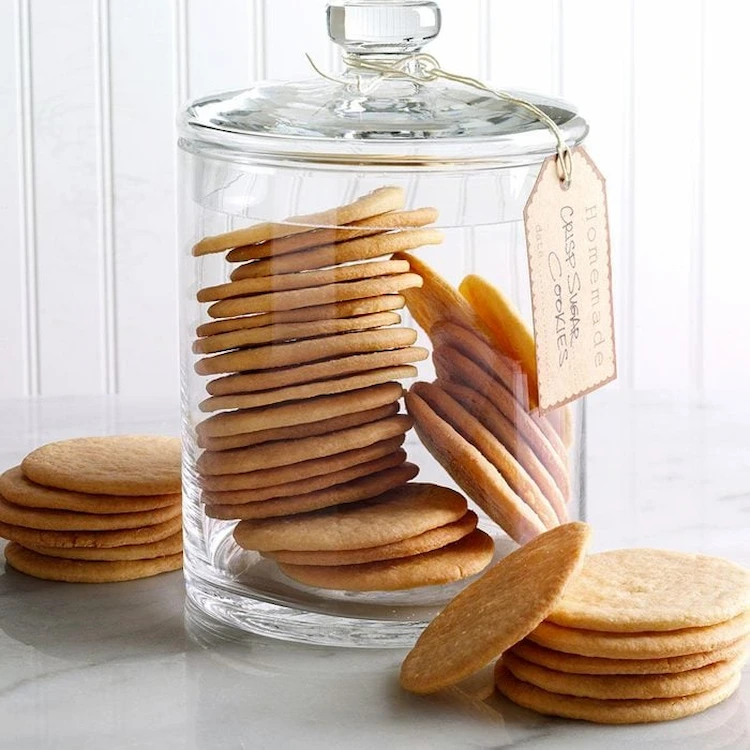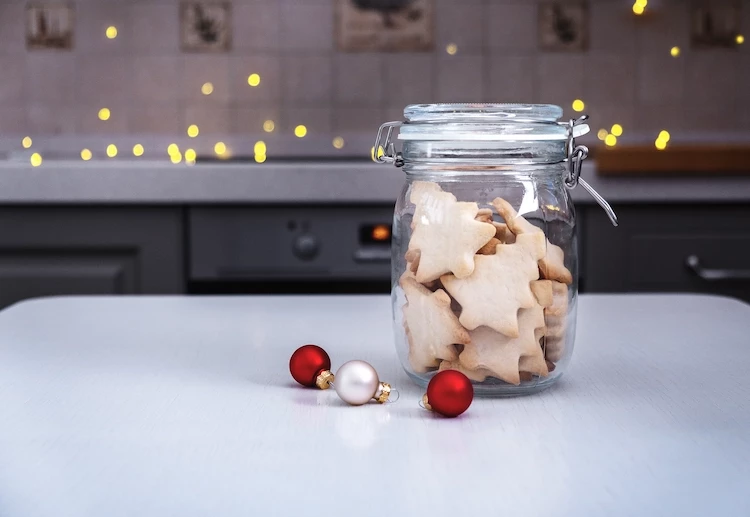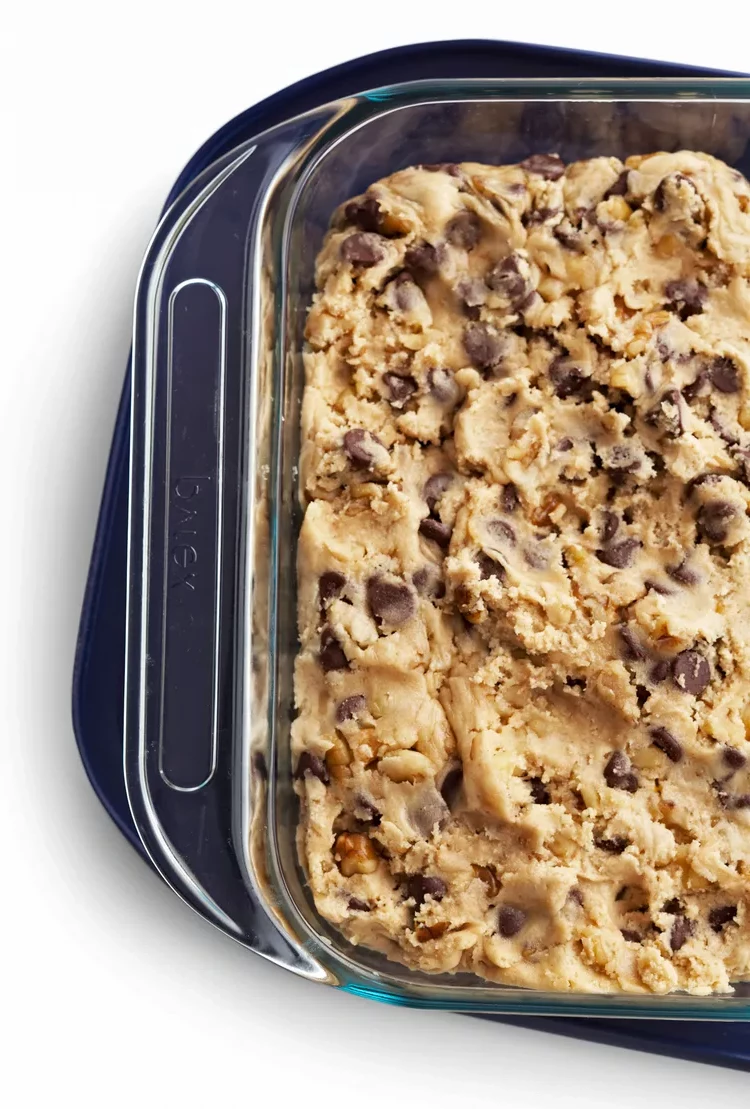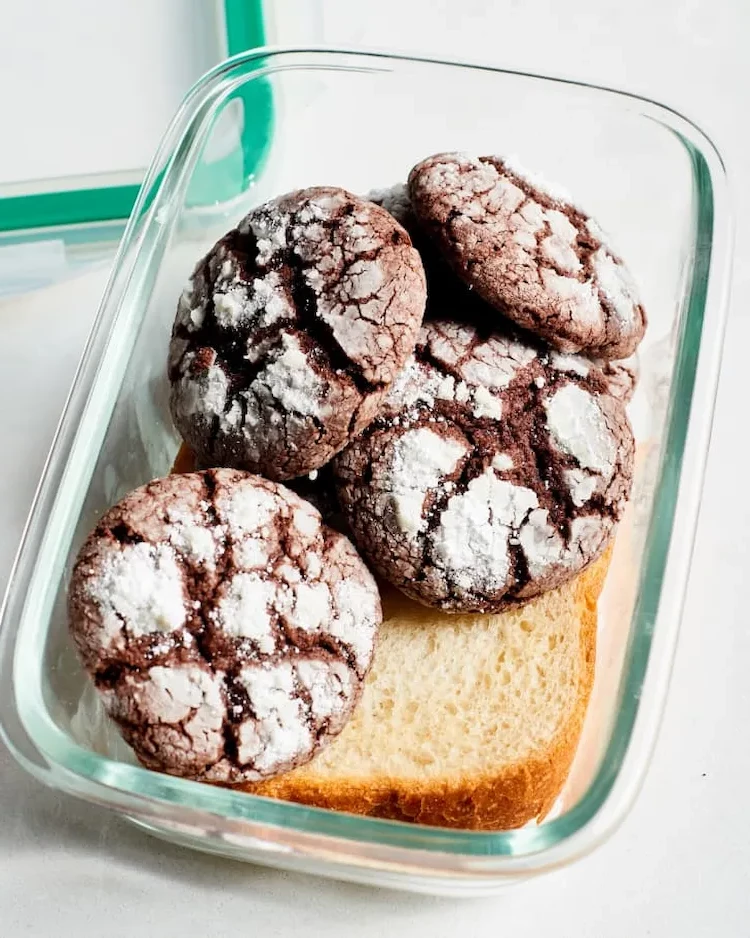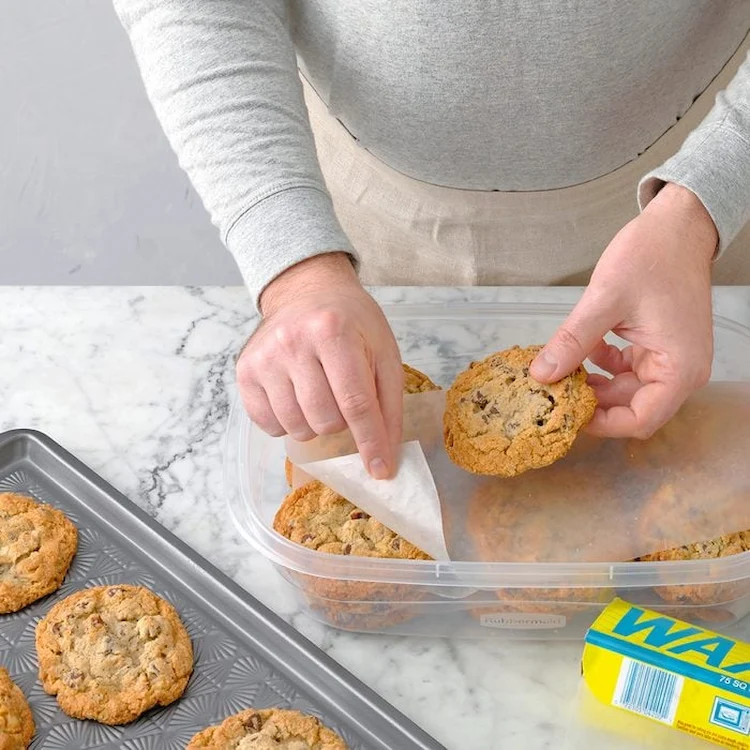Do you know how to store cookies? Whether you want to store cookies for Christmas or for everyday enjoyment, there are several ways to do so. Generally, cookies stay fresh at room temperature for about three days before drying out. However, when stored properly in the freezer, pastries can last up to six months. To keep it from getting stale and avoid potential cookie storage mistakes, there are a few simple steps you can take. Here are the most common ways to store baked goods so they can look forward to their crispness and freshness for longer.
How to store cookies – What are the dos and don’ts?
Few pleasures in life are better than homemade Christmas cookies or delicious baked goods. However, that joy can falter if your batch goes soft or even quickly goes moldy. The good news is that you can always save your pastries for later. In addition, there are a few ways to extend their shelf life. However, for this you should follow simple but strict rules and never break them. When storing homemade baked goods and fresh cookie dough for future use, the main goal is to keep them fresh. With existing kitchen supplies and a few basic tricks, this can be easily done.
First you need to get acquainted with the main enemy of a cookie’s freshness – air. Permanent outdoor storage makes starchy foods stale. Air exposes such products to greater evaporation even if only through a slit in a plastic bag. This can dry out the pastry quickly. Think of a drink you left out overnight. In the morning there is less liquid in it, which would happen in a similar way with cookies.
How to store cookies? Follow these simple rules for storing baked goods
There are a few rules of thumb when it comes to how to preserve baked pastries. These guidelines will help you keep each piece fresher for longer.
- The first rule is to let the cookies cool completely before trying to store them. When you cool cookies, they release moisture in the form of steam. So if hot baked goods are in a plastic container, your storage space will quickly become damp, with condensation forming inside. Excessive moisture can lead to soggy cookies, which in turn, become stale.
- The second rule is to store different types of baked pastries separately. Different cookies require the appropriate environment, and keeping them in the same container affects them. This also prevents an odd mixture of flavors or stronger flavors from “spreading” to other cookies.
- Finally, if you were to store cookies in a sealable bag, you should not leave them lying around. They are simply too susceptible to air infiltration and could get crushed, as well as heat up unnecessarily in the warmth of your kitchen. This, in turn, can lead to moisture that makes each piece mushy.
Prevent air exposure
You can minimize exposure to air in a number of ways. This depends on quantity, schedule and preferences. Ironically, you can make mistakes if you use a cookie jar to store cookies. As a pretty Christmas decoration, these might look adorable on the counter, but despite their name, cookie jars are usually not completely airtight. Similarly, cake stands and other window displays are not good for keeping your baked goods in for more than a few hours. This is because these tend to allow plenty of air to pass through the top, eliminating crispness and textural contrasts and giving cookies a touch hard.
How to store cookies: When to use a fridge or freezer?
If you intend to eat cookies or scones longer than four days after baking, you should use your freezer for storage. The same goes for cookie dough that you won’t be baking on the same day or next day. In addition, such baked goods can be stored in the freezer for at least a year. However, if you freeze raw dough, it’s best to use it within a few months. Here’s how you should freeze your cookies:
- It is best to use sealable plastic containers or bags that are freezer safe.
- However, do not use cookie jars for this, such as those for Christmas cookies.
- Transfer the cookies to containers only after removing them from the freezer.
If you want to store cookies in the fridge, they can last two weeks at a low temperature. However, it is better to consume them a little earlier. Again, store baked goods in the refrigerator in a fully sealable plastic bag or container to prevent air infiltration.
When should you store cookies at room temperature?
As already mentioned, such baked goods will remain in optimal condition for consumption for two to three days if not refrigerated. If your cookie box isn’t airtight and you still want to use it to store cookies on the counter, it’s a good idea to place the cookies in a sealable plastic bag before storing them in the tin to keep the air out. Sealable plastic containers and bags can keep pastries in good condition at room temperature. But when should you move freshly baked cookies from the kitchen counter to the refrigerator? Treats made from perishable ingredients as jams or meringues require cooler conditions within a few hours of baking.
Tricks to store soft cookies
The key to storing soft baked goods is to minimize airflow to keep them from losing moisture. When exposed to air, their molecules begin to crystallize, stripping water from the gluten, which leads to spoilage. Additionally, gingerbread, chocolate chip cookies, and peanut butter cookies should be stored separately from crunchy cookies. If they have a strong flavor, they should also be kept away from other types of soft baked goods and stored in an airtight container.
To keep them at their softest, you can use a hack and place a slice of white bread in the airtight container. Just as this trick helps keep brown sugar soft, it also keeps cookies soft because the moisture in the bread leaches into the cookies. Softer pastries, including brownies and those with glaze or frosting, should remain in a single layer in an airtight container. In addition, the method of using bread absorbs the dry air and prevents them from becoming stale. Properly prepared, soft baked goods stay fresh for three days in the refrigerator and up to three months in the freezer.
How to can store crunchy cookies?
The goal for dry baked goods is just the opposite: you want to keep moisture away from them. To do this, keep crunchy cookies separately from soft ones. This can be done in an airtight container that is not completely sealed. This will allow some air to sneak in and keep your cookies from getting damp and wet. If any of these cookies have a strong flavor, again divide them by type. Dry cookies like shortbread and butter cookies, as well as non-frozen pastries, are better stored in several layers.
However, depending on the ingredients of your pastry, you can store sturdier varieties in different ways. In addition, durable Christmas cookies can be stacked in layers without anything in between. Not-so-durable varieties, however, require some separation. For example, you can use parchment paper, plastic wrap, or even tortilla chips as a barrier between layers. Moreover, you can still store crispy baked goods quietly in a cookie jar. In this case, the small amounts of air that seep in actually help maintain the texture.
How to store and use cookie dough
Homemade cookie dough stays fresh in the refrigerator for two to four days and should also be stored in appropriate containers. However, frozen cookie dough can last up to two months. There are two methods to freeze such dough: shaped into ready-to-bake individual cookies or as a whole batch. Here are the simple steps you can follow to do this:
- To store pre-portioned cookies by freezing them, you should spread them out on a baking sheet lined with baking paper or greased.
- After that, freeze the sheet for an hour to prevent it from sticking.
- Then transfer the raw cookies to an airtight container and place in the freezer.
- This method works very well for simple cookies like chocolate chips rather than cookies that contain jam, fresh citrus juice or zest, and cream cheese.
- You can also freeze a cookie dough batch for later shaping. This works great for simpler cookies.
- If you plan to use a cookie cutter, slightly chilled dough can help the baked goods hold their shape later. Just make sure you have enough time to thaw the dough beforehand.

